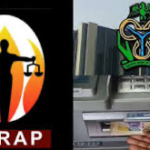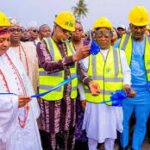Nigeria’s poverty can be attributed to several complex and interrelated factors:
Economic Dependency on Oil: Nigeria’s economy heavily relies on oil exports, which account for a significant portion of government revenue. However, this dependence has not translated into widespread prosperity due to oil price volatility, corruption, and the lack of diversification into other economic sectors. This has led to a situation where wealth from oil does not benefit the broader population.
Corruption and Mismanagement: Widespread corruption, especially in the public sector, has been a significant barrier to economic growth and poverty reduction. Funds meant for development often disappear into private hands, reducing the effectiveness of public spending on infrastructure, education, and health services.
Inequality and Distribution of Wealth: There is a stark contrast between the wealth of a few and the poverty of the many. Economic gains are not evenly distributed, with the oil wealth concentrated among a small elite, while the majority of the population does not benefit. This inequality is also seen in access to basic services like education and healthcare, particularly in rural and northern parts of the country.
High Unemployment: Unemployment rates, especially among the youth, are high. This is exacerbated by an education system that often does not equip students with necessary skills for the job market and an economy that does not create enough jobs outside the oil sector.
Population Growth: Nigeria’s population is growing rapidly, putting additional pressure on resources and infrastructure. Economic growth has not kept pace with population growth, leading to a per capita income that does not rise as fast as it could.
Lack of Infrastructure: Poor infrastructure, including inadequate power supply, transportation, and sanitation, hampers economic activities and increases the cost of doing business, thereby limiting economic growth and poverty alleviation efforts.
Educational and Health Disparities: High illiteracy rates, particularly among women and in rural areas, and poor health outcomes contribute to a cycle of poverty. These issues are exacerbated by insufficient government investment in these sectors.
Security Challenges: Ongoing issues like insurgency in the northeast, banditry in the northwest, and other forms of insecurity disrupt economic activities, displace populations, and require significant government spending on security rather than development.
These elements combine to create a multifaceted challenge in reducing poverty in Nigeria, where despite being resource-rich, systemic issues prevent equitable economic growth and distribution.







